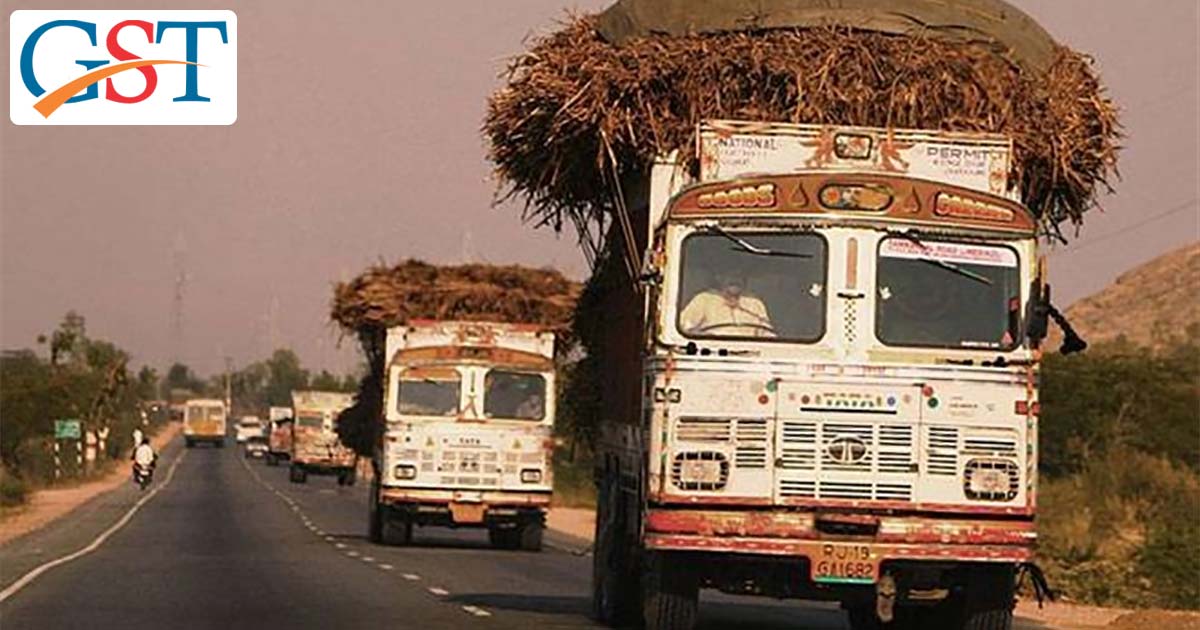GST E-way bill has been implemented from April 1st, 2018 and more than 11.18 lakh taxpayers registered through the online e-way bill portal till now. Finally, the long queues of trucks waiting for a number outside the state borders have ended and the lives of transporters have become easy. The portal-driven payment system helps the government in tracking the movement of goods within states or out of states.
Taxpayers have taken all the measures to evade the taxes and now evading GST e waybill.
From the 11.18 lakh registered taxpayers in the e-way bill portal, mostly belong to unorganised businesses, which even used to pay taxes previously as well. But when we move in the country to the smaller markets, there are many who do not pay taxes and are extremely successful. With the GST launch, it was anticipated that these unorganized brands would be moved out, but they managed and applied some ‘Jugaad’ to succeed over the conceivable tax-related tasks.
Indore is the business hub of MP and it is known for local food brands. There you can find local as well as regular brands in roadside shops. If you go to buy a packet of ‘Namkeen’, you will find regular brands such as Bingo and Parle, further, it also provides brands such as Pet Pooja, Motu Patlu and All Is Well. Generally, these local brands attract more takers as the price is competitive, offers more grammage and even the retailer has a good margin in an offer. But, no local wholesaler of those local brands pays taxes. Even though, they do not do proper billing to escape from taxes.
In the starting phase of GST rollout, many businesses cut out of the market for a duration. But, some are back and utilizing the loopholes in the system to run the business.
Read Also: Traders Find New Methods To Evade Goods and Services Tax
Many of these have initiated bill generation for 10-15% of the products, but carry on to sell most in an unorganized manner. A distributor of an established food brand, Indore mentioned, “I don’t know for how long they will be able to do business this way, but none of the local brands is doing business in an organized way.”
As the e-way bill is still under test, many local brands were busy in advance putting efforts to escape from getting registered on the portal. The local brand distributor now using routes such as transporting through Volvo buses, using milkman to distribute. Furthermore, a detergent maker is not able to do the business, even though he has a GST number as raw material suppliers are refusing to provide a bill. “Even the wholesalers refuse to buy my products if I insist on billing since I am an extremely small manufacturer.”
There is no bigger difference in paying taxes and not paying taxes, “but people are just not used to paying taxes.”
This practice to not generate bills for a transaction is prevalent in larger cities too. Crawford Market, the wholesale market of Mumbai, the traders are more comfortable in cash transactions instead of bill based. They force on bill-less transactions and attract the consumer with the carrot saying the GST won’t be charged if they do bill-less transactions.
Recommended: How to Check Genuine GST Bill Online As Given by Seller?
The success of GST and E-way bill depends on traders. So, we have to wait and watch for the clear result. But, till now, many local businesses are looking for loopholes to escape from paying taxes.
